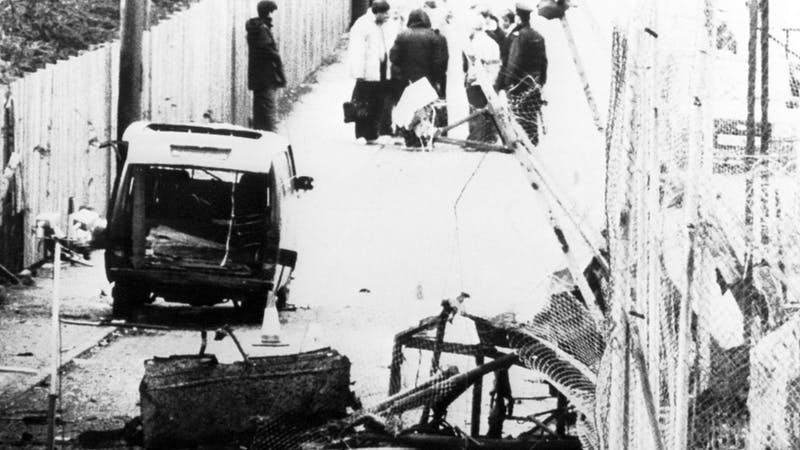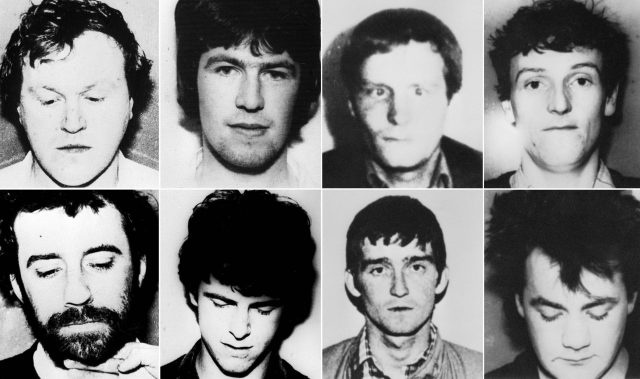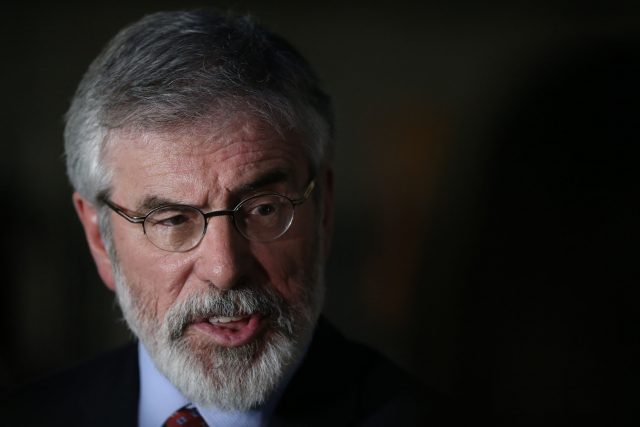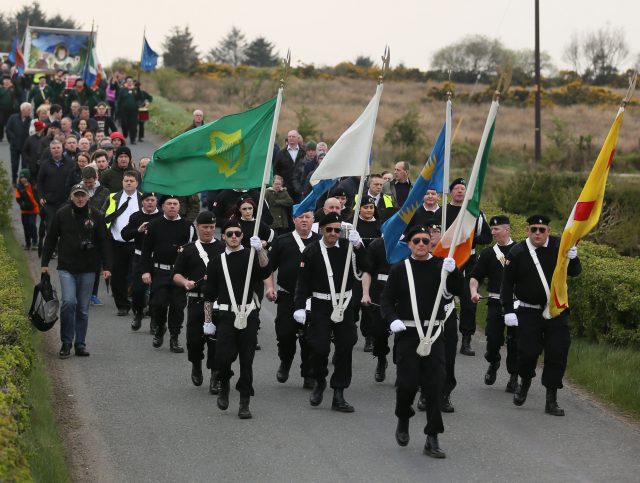
GERRY ADAMS was rumoured to have set up a notorious IRA gang for ambush by the SAS as they tried to blow up a police station in May 1987, previously secret files have revealed.
Eight members of the Provisional’s East Tyrone Brigade were shot dead after they loaded a 200lb bomb onto a stolen digger and smashed through the gates of the RUC barracks in Loughgall, Co Armagh.
British Army special forces were lying in wait and killed them all, along with innocent bystander Anthony Hughes.
Declassified documents released through the National Archives in Dublin revealed that ballistic tests on weapons found on the dead were used in 40-50 murders, including every republican killing in Fermanagh and Tyrone in 1987.
Three civilian contractors had been murdered in the counties that year along with officers in the RUC and British Army’s Ulster Defence Regiment.
The rumour about Mr Adams was passed on to Ireland’s Department of Foreign Affairs by respected cleric Fr Denis Faul about three months after the Loughgall operation.
The priest, who had been at school in St Patrick’s Academy, Dungannon with Padraig McKearney, one of the IRA gang, said the theory doing the rounds was that “the IRA team were set up by Gerry Adams himself”.
Fr Faul said he was “intrigued” by the theory.
In response to the reported remarks in the Government file, a Sinn Fein spokesman said: “These claims are utter nonsense.”
Fr Faul, a school teacher and chaplain in Long Kesh prison, said the rumour was that two of the gang – Jim Lynagh, a councillor in Monaghan, and McKearney – “had threatened to execute Adams shortly before the Loughgall event”.
It was being claimed that Lynagh and McKearney “disliked Adams’ political policy” and that they were leaning towards Republican Sinn Fein.
Three days after the operation, Tanaiste and Foreign Affairs Minister Brian Lenihan wrote to Northern Ireland Secretary of State Tom King urging him not to triumph over the killings.
“We asked you through the Secretariat to be mindful of the need to avoid any sense of triumphalism on the part of your authorities,” Mr Lenihan said.
“It is necessary that sensitivity be shown in regard to the funerals which are now taking place and that the investigation of the events should pay particular attention to the question of whether such a large number of casualties, including the civilian casualty, could have been avoided.”
Mr King wrote back over a week later and revealed: “My advice is that that (IRA) group had at least 40-50 murders to their score over the years.”
Notes from briefings by the British Government to Irish officials in London revealed the security forces claimed the IRA fired first; that the gun battle lasted two to three minutes; that the SAS fired “no more rounds than were necessary”; and that every IRA weapon had been fired.
Along with Lynagh and McKearney, the IRA gang included Gerard O’Callaghan, 29, Tony Gormley, 25, Eugene Kelly, 25, Patrick Kelly, 30, Seamus Donnelly, 19, and Declan Arthurs, 21.
The operation has long been associated with questions of an informer having tipped off the RUC and British Army.
In the same file, Bishop of Clogher Joseph Duffy told a diplomat that Lynagh was a “madman” and was believed to have been responsible for 20 murders, including that of Sir Norman Stronge and his son in January 1981.
The documents from the Department of Foreign Affairs can be read in the National Archives in Dublin in file 2017/4/74.

Enjoy the convenience of having The Sunday Post delivered as a digital ePaper straight to your smartphone, tablet or computer.
Subscribe for only £5.49 a month and enjoy all the benefits of the printed paper as a digital replica.
Subscribe

